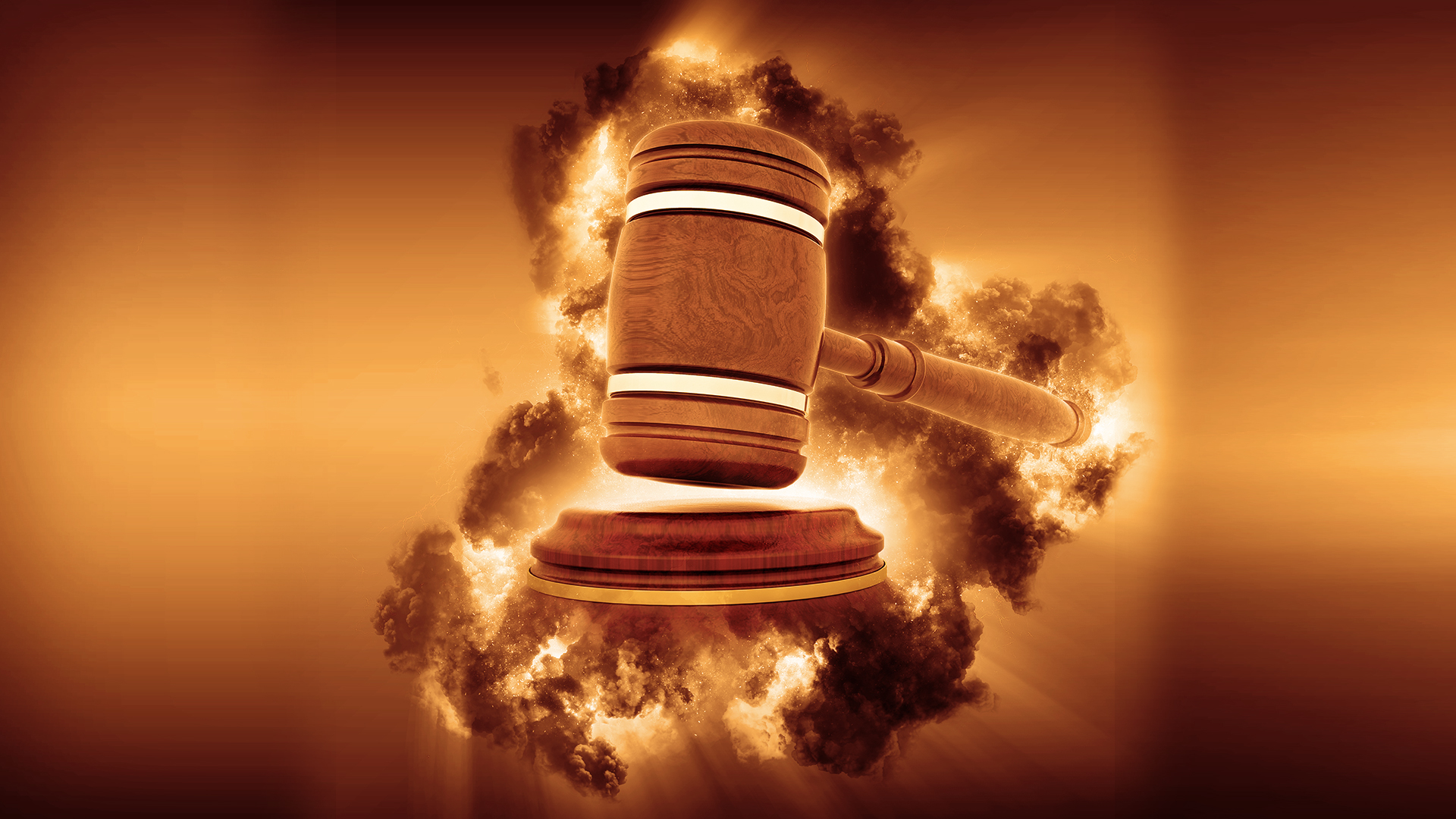Post Conviction Relief in Virginia is a legal process that allows individuals to challenge their convictions or sentences after the trial has concluded. One of the most common avenues for post-conviction relief is filing an appeal. The appeals process is crucial for ensuring that any legal errors made during the trial are corrected, and that justice is served. Understanding how the appeal process works can provide hope for those seeking justice after a conviction.
This guide will walk you through the appeals process for post-conviction relief in Virginia, explaining how to file an appeal, what grounds are needed, and what to expect during the process. We will also discuss the limitations of appeals and alternative post-conviction options for those whose appeals are denied.
What is an Appeal in the Context of Post Conviction Relief?
An appeal is a legal process where a higher court reviews the decision of a lower court to determine if there were any errors in the legal proceedings that affected the outcome of the case. Unlike a trial, where new evidence and testimony are presented, an appeal focuses solely on the legal aspects of the case. The goal of an appeal is to determine whether the trial court properly applied the law and followed procedural rules.
In Virginia, appeals must be based on specific legal errors, such as improper jury instructions, admission of inadmissible evidence, or a judge’s failure to follow the law. Appeals are not a chance to re-argue the facts of the case or present new evidence, but rather to correct mistakes that occurred during the trial.
How the Appeals Process Works in Virginia
The appeals process for post-conviction relief in Virginia follows several steps, each with its own set of rules and deadlines. Here’s an overview of how the process typically works:
1. Notice of Appeal
The first step in filing an appeal is submitting a “Notice of Appeal” to the court. In Virginia, this notice must be filed within 30 days of the final judgment in the case. The Notice of Appeal is a formal document that notifies the trial court and the opposing party that the convicted individual intends to appeal the decision.
It’s essential to meet this deadline, as failing to file within the specified time frame will likely result in the loss of the right to appeal. Consulting with an attorney during this period is critical to ensure that all necessary paperwork is filed correctly.
2. Preparing the Record on Appeal
After the Notice of Appeal is filed, the next step is preparing the “record on appeal.” The record includes all documents and evidence from the trial, including transcripts of court proceedings, exhibits, and any motions or rulings made by the court. The appellate court will use this record to review the case and determine if legal errors were made during the trial.
In Virginia, the trial court is responsible for transmitting the record to the appellate court, but the appellant (the person filing the appeal) may need to ensure that the record is complete and accurate. Any missing documents could negatively impact the appeal.
3. Appellate Briefs
Once the record on appeal is complete, both parties will submit written arguments, known as “briefs,” to the appellate court. The appellant’s brief will outline the legal errors that occurred during the trial and explain why the conviction or sentence should be overturned. The opposing party (usually the state) will file a response brief, defending the trial court’s decision.
The appellant’s brief is the most critical part of the appeals process, as it sets the legal foundation for the appeal. An experienced attorney can help craft persuasive legal arguments that highlight the trial court’s mistakes and demonstrate how those errors impacted the case’s outcome.
4. Oral Arguments
In some cases, the appellate court may schedule oral arguments, where both parties will have the opportunity to present their cases in person. Oral arguments allow the attorneys to clarify points made in their briefs and answer questions from the judges. While oral arguments can be an essential part of the appeals process, they are not always required. Many appeals are decided solely based on the written briefs.
5. Appellate Court Decision
After reviewing the record on appeal, the briefs, and any oral arguments, the appellate court will issue its decision. The court may choose to:
- Affirm the conviction, meaning that the trial court’s decision stands.
- Reverse the conviction, which may result in a new trial or an outright dismissal of the case.
- Modify the sentence, potentially reducing the punishment.
In some cases, the appellate court may remand the case back to the trial court for further proceedings, such as re-sentencing or additional fact-finding.
Grounds for Appeal in Post Conviction Relief
To successfully appeal a conviction in Virginia, there must be valid legal grounds for the appeal. Common grounds include:
1. Legal Errors
One of the most common grounds for appeal is that the trial court made legal errors during the proceedings. These errors could include:
- Improper jury instructions: If the judge gave incorrect instructions to the jury, it could lead to an unfair verdict.
- Admission of inadmissible evidence: If evidence that should have been excluded was allowed during the trial, it could unfairly influence the jury’s decision.
- Legal mistakes by the judge: The judge may have misinterpreted or misapplied the law in a way that negatively impacted the trial.
2. Constitutional Violations
Constitutional violations during the trial or sentencing process are another common ground for appeal. These violations could include:
- Ineffective assistance of counsel: If the defense attorney did not adequately represent the defendant, this could be grounds for appeal.
- Violation of the right to a fair trial: If the trial was biased or conducted improperly, this could be a violation of the defendant’s constitutional rights.
- Prosecutorial misconduct: If the prosecutor engaged in unethical or illegal behavior, such as withholding evidence, it could affect the fairness of the trial.
3. Insufficient Evidence
In some cases, the convicted individual may argue that there was insufficient evidence to support the guilty verdict. This argument focuses on whether the prosecution met its burden of proof and whether the evidence presented at trial was strong enough to justify the conviction.
Limitations of the Appeals Process
While the appeals process is a powerful tool for post conviction relief in Virginia, it does have its limitations. Appeals are limited to addressing errors in the trial process and cannot introduce new evidence or re-argue the facts of the case. Additionally, appellate courts tend to defer to the trial court’s findings of fact, making it difficult to overturn a conviction based on factual disputes.
In cases where new evidence emerges after the trial, or there are constitutional violations that were not addressed during the trial, other forms of post conviction relief may be more appropriate, such as filing a writ of habeas corpus.
What Happens if Your Appeal is Denied?
If an appeal is denied, it is not necessarily the end of the road for post conviction relief in Virginia. Other legal options may still be available, including:
- Filing a writ of habeas corpus: This legal action challenges the constitutionality of the conviction or imprisonment.
- Motion for a new trial: In cases where new evidence emerges or legal errors are discovered, a motion for a new trial may be appropriate.
- Seeking clemency or a pardon: In rare cases, individuals may request executive relief, such as clemency or a pardon, from the governor.
Each of these options has its own rules and deadlines, making it essential to consult with an attorney to determine the best course of action.
FAQs
Q1: How long do I have to file an appeal in Virginia?
In Virginia, a Notice of Appeal must be filed within 30 days of the final judgment. Failing to meet this deadline may result in losing the right to appeal.
Q2: Can I present new evidence during an appeal?
No, the appeals process focuses on legal errors made during the trial and does not involve presenting new evidence. Other forms of post-conviction relief, such as a writ of habeas corpus, may allow for new evidence.
Q3: What happens if my appeal is denied?
If your appeal is denied, you may still have other options for post-conviction relief, such as filing a writ of habeas corpus or seeking clemency.
Q4: What are common grounds for appeal?
Common grounds for appeal include legal errors, constitutional violations, and insufficient evidence to support the conviction.
Q5: Can I appeal my sentence without appealing the conviction?
Yes, in some cases, individuals may appeal their sentence without challenging the conviction itself. This is known as a sentence modification appeal.
Conclusion
The appeals process is a critical component of post conviction relief in Virginia, offering individuals the opportunity to correct legal errors that may have occurred during their trial. By understanding the steps involved and the grounds for appeal, convicted individuals can better navigate the legal system and seek justice. While appeals are not guaranteed to succeed, they provide an essential mechanism for protecting constitutional rights and ensuring fairness in the criminal justice system.








